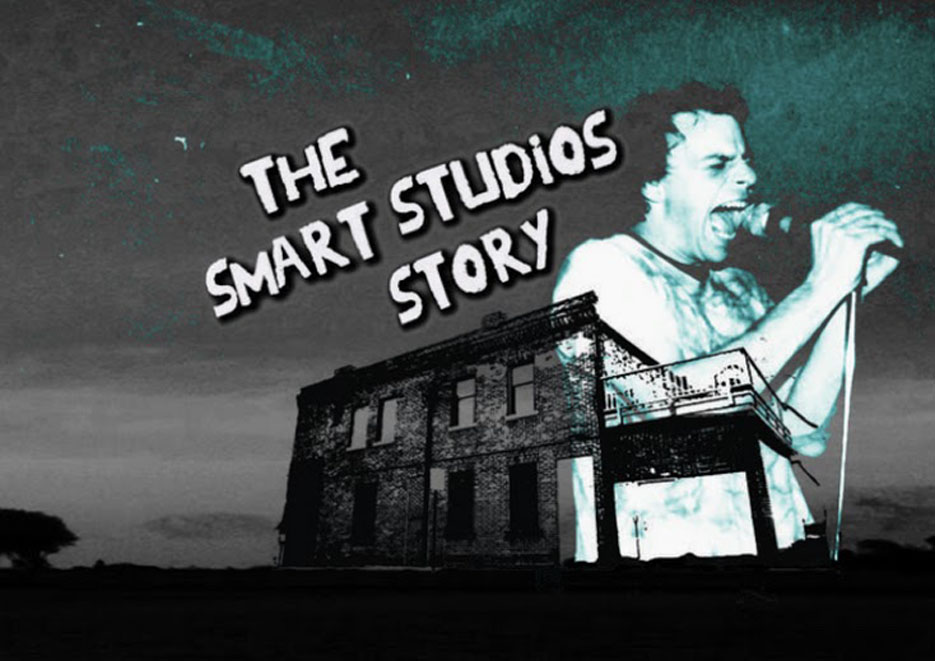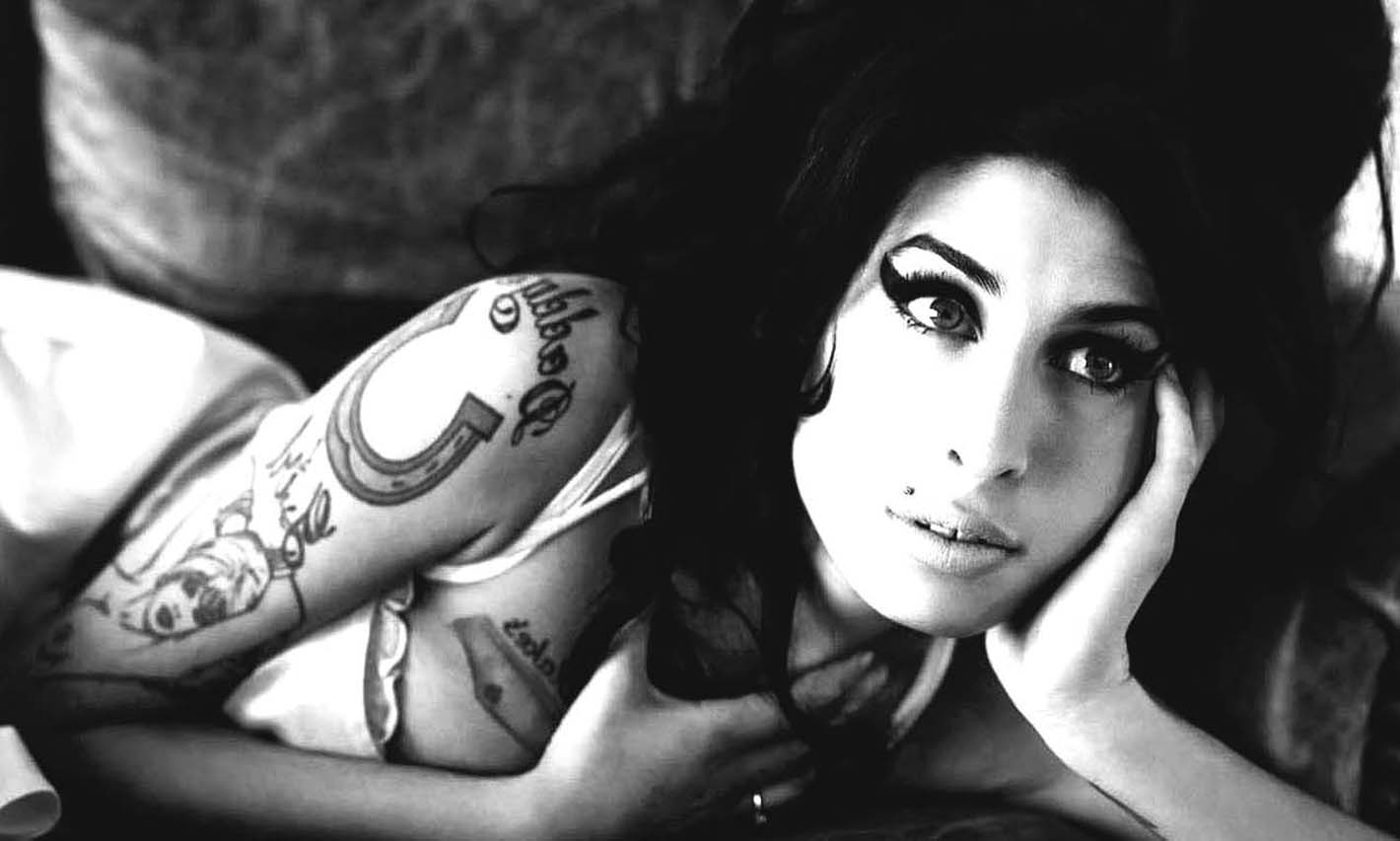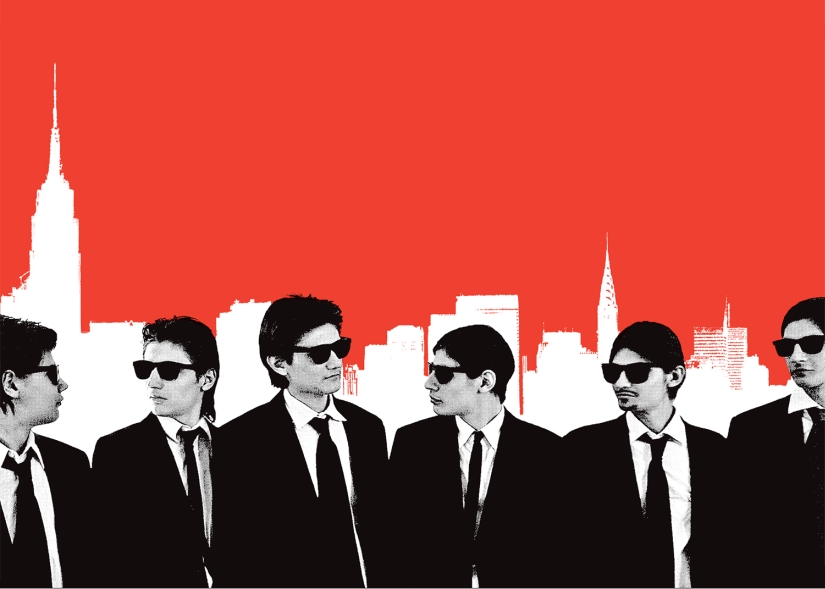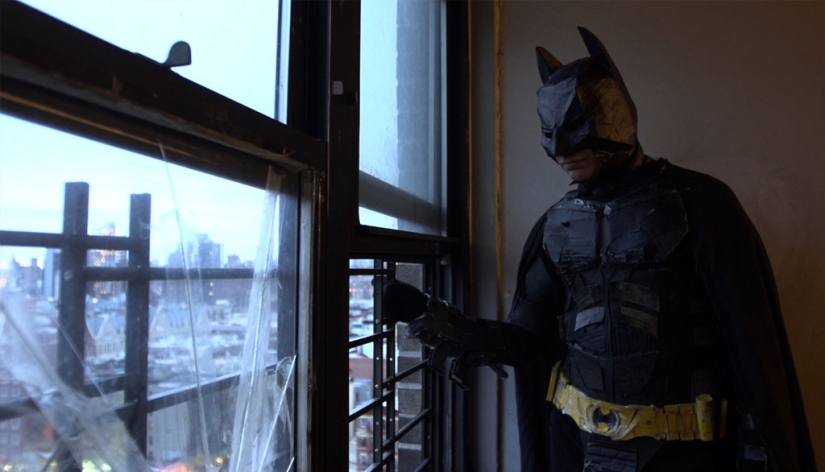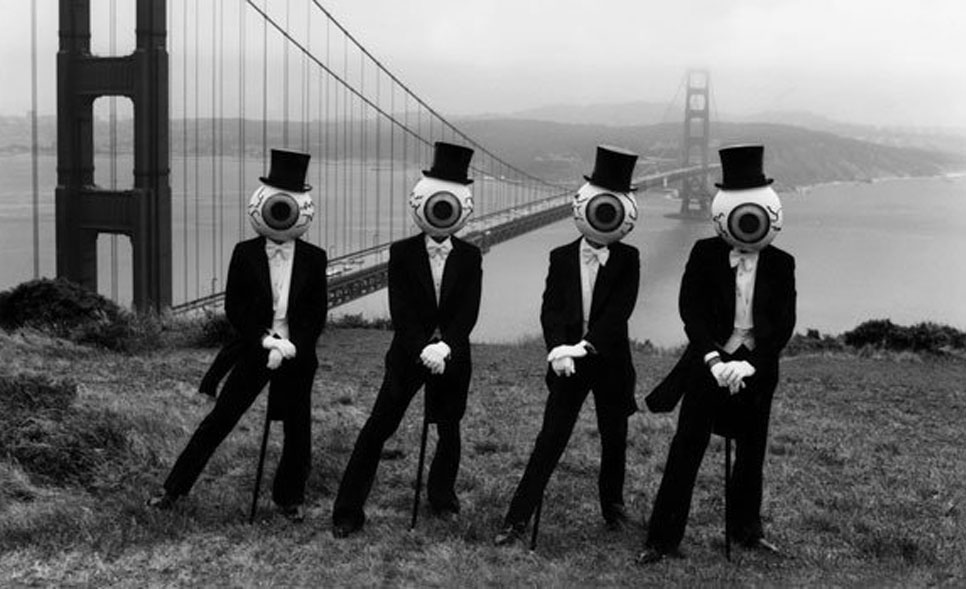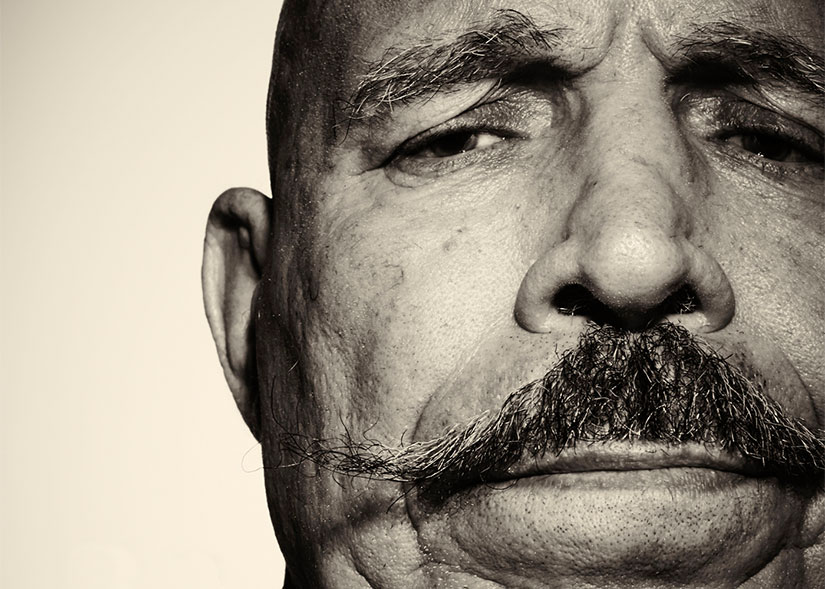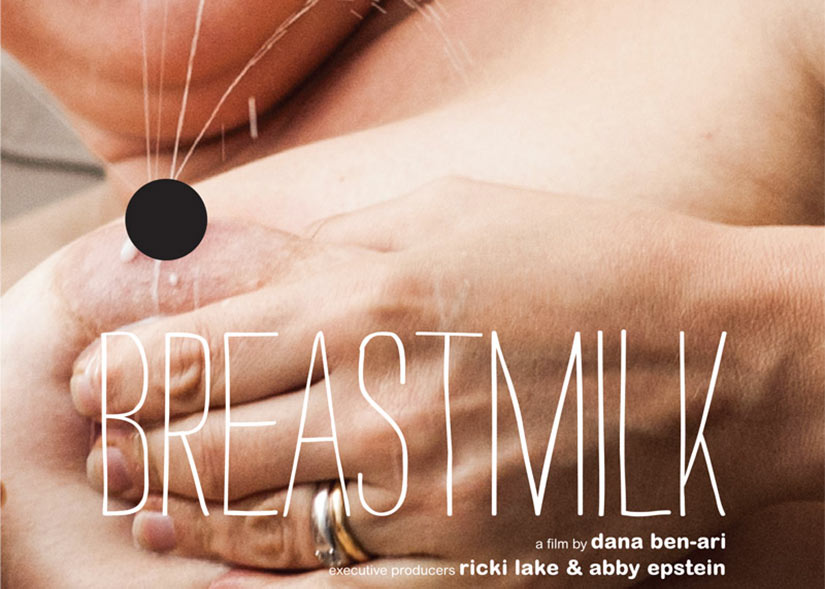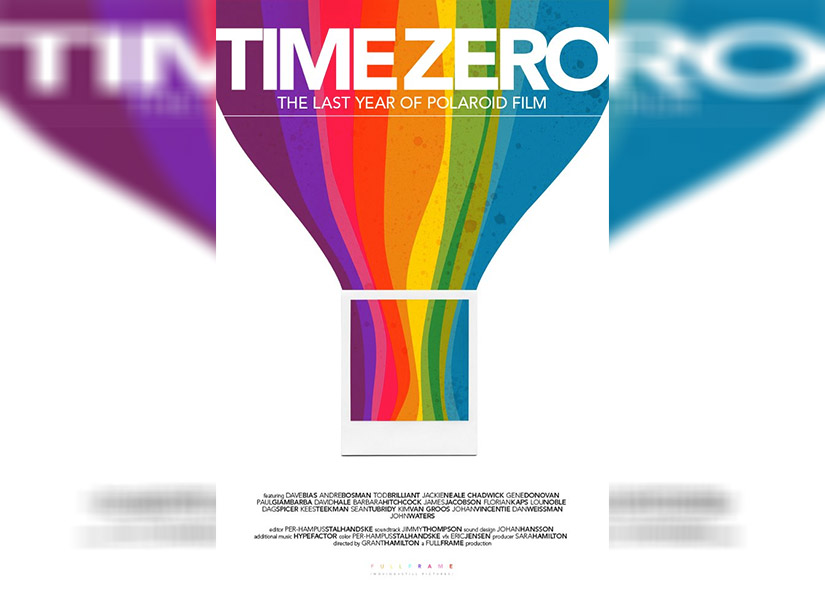[Review] The Smart Studios Story
The Smart Studios Story
Director: Wendy Schneider
Rating: N/A
Release Date: March 16, 2016
The Chicago International Movies & Music Festival (CIMM Fest) opened last night with the first Midwest screening of The Smart Studios Story, at The Music Box, and it did not disappoint. The documentary revisits the legendary Madison recording studio that helped birth the indie rock and pop culture scene of the 80's and 90's. Founded by Butch Vig and Steve Marker in 1983, the studio produced bands such as Killdozer, The Smashing Pumpkins, L7, Tad, Garbage, and Nirvana. The story chronicles the humble beginnings of the studio, their rise to fame, and the end of a grand era.
[vimeo id="87298310"]
The Smart Studios Story premiered at South by Southwest this year, but this screening here in the midwest, where it rightfully belongs, was quite special. CIMM Fest even provided an exclusive Q&A after the screening where Butch Vig, Steve Marker, and Director and Co-Producer Wendy Schneider were completely open to sharing their experience in making the film, going through memories, even sharing some that didn't make the film.
Overall, this was one of the best music documentaries I've seen in a long time. The bass thumping soundtrack, along with heartfelt interviews from Butch Vig, Steve Marker, Billy Corgan, Dave Grohl, Shirley Manson, Donita Sparks, Chris Walla and tons of great bands were all completely raw and entertaining. The special impact the Midwest continually has on pop culture is eloquently demonstrated, and the story has all the footage to prove.
For more screening and event info, check out their site here.
Remember Chris Farley in Trailer for I Am Chris Farley
[youtube id="aofacg_Gy0E"]
Chris Farley is known as one of the funniest, most beloved comedians of our time. Since his death in 1997, so many of his clips and films still circulate on a continual basis; It's truly a wonder as to how it's taken this long for a full featured documentary to be made. But at last, I Am Chris Farley brings together variety of home videos from his childhood to early career footage, to some infamous SNL clips, along with interviews from actors David Spade, Christina Applegate, Dan Aykroyd, Lorne Michaels, Mike Myers, Adam Sandler, Molly Shannon, and many more to reflect on the comedian’s life and legacy from his road from the Midwest to Hollywood.
Opening in theaters on July 31st, 2015, the first trailer brings heartfelt to hilarious emotions. I Am Chris Farley will also be available on VOD, digital download, and DVD on August 11, 2015.
Watch a Young Amy Winehouse Sing Happy Birthday
After receiving rave reviews in May at the Cannes Film Festival, Amy remains one of the most highly anticipated films of 2015. Directed by Asif Kapadia, the film is featuring never-before-seen footage and interviews with her closest friends, ex-lovers, and collaborators, illuminating the Grammy winner’s early struggles with depression and bulimia en route to her surge as an artist.
However, Winehouse's father and former boyfriend have come out with much protest, issuing a statement claiming Amy “is both misleading and contains some basic untruths.” In response to this, the filmmakers have maintained cooperation of the Winehouse estate and confirmed to have "conducted in the region of 100 interviews with people that knew Amy Winehouse; friends, family, former partners and members of the music industry that worked with her." The film is said to be based off of these interviews.
Are there really "untruths" in the film, or was there more to Amy Winehouse than what her family and former boyfriend knew? Regardless, the controversy is adding both mystery and hype for the documentary's much anticipated release. For now, enjoy this special clip featuring the songstress singing "Happy Birthday" as a young 14-year-old. Amy will be in LA and NY theaters on July 3rd with a national release on July 10th.
[youtube id="39AibKDWbjE"]
The Wolfpack Is a Problematic Documentary Rather Than a Quirky Delight
Given its overuse, the word "problematic" can seem so mealy-mouthed and equivocal. Yet "problematic" is the word that came to mind after I watched Crystal Moselle's documentary The Wolfpack, which comes out today in New York and Toronto and opens in more theaters across the country next week.
The Wolfpack chronicles the lives of the Angulo brothers, six teenage boys and young men who live in Manhattan. For most of their lives, their parents forbade them from leaving their Lower East Side apartment. The six brothers and their sister were homeschooled and prevented from seeing the outside world. While there's a specter of physical and psychological abuse throughout the film, the Angulo boys find an oddly joyous outlet via home video recreations of movies such as Reservoir Dogs and The Dark Knight. Moselle captures the Angulo brothers just as they are beginning to get out of the apartment and assert their own agency.
There have been a few accusations that the film is a fabrication and that the story that Moselle found was too riveting to be true. That's not an issue to me. Moselle explained her filmmaker process and how she first encountered the Angulo brothers in various interviews (this interview Moselle did with Tasha Robinson of The Dissolve is quite good), so I don't think matters of fabrication need to be answered any further. What I found problematic was the film's form of presentation, which is both intriguing and yet incomplete. It leaves so many questions about the Angulo family either unanswered or seemingly unasked, and it made me wonder about the difficult and delicate relationship that documentarians have with their subjects when the subject matter is troubling.
[iframe id="https://www.youtube.com/embed/rDbqcMfUdlI" align="center" mode="normal" autoplay="no" maxwidth="825"]
From a distance, the situation of the Angulo brothers sounds like a potential casserole of indie movie quirkiness. Their forced internment in the apartment, their positivity in the face of the situation, their recreations of popular films, the verite style in which the documentary is shot--it's like some mash-up of The Unbreakable Kimmy Schmidt, Be Kind Rewind, and Grey Gardens. I sense the Angulo's film recreations helped endear The Wolfpack to the Sundance crowd, and there is something oddly quaint about seeing boys do a scene-for-scene remake of The Dark Knight Rises in homemade cardboard costumes. But that quirkiness and lightness is at odds with the grimness of the boys' situation. This is an intentional tension in the film's tone, and while a fascinating disjunction on one level, it took me aback and I'm still not sure how to feel about it.
The film recreation aspect seems like a feel-good selling point for The Wolfpack, though it's just one facet of the Angulo brothers' much more complicated interior lives. They're redoing a Tarantino movie with cardboard guns--how cute. They've been kept prisoner by a domineering and emotionally distant father--ummm, yeah. I kept wondering about the Angulos using film as a tool for socialization and whether or not it worked for them, and why their father who hated the violence and vice of the outside world would let them watch movies full of violence and vice (and then allow the boys to recreate it). There's so much to unpack and to explore that's glossed over. Though to be fair, all that material is so loaded and layered. Maybe a verite documentary can only delineate the broad contours of interior lives rather than the various textures and fine details--character sketches rather than full portraits.
The entire relationship between the boys and their parents similarly gets the contour treatment. While the boys' mother Susanne seems warm and receptive (though not all there), their father, Oscar, is cold and hesitant about saying much of anything. Before Oscar winds up on camera, he's viewed furtively. The film's structured in a way that suggests Moselle, through greater interaction with the boys and Susanne, is slowly earning the limited trust of the Angulo patriarch. Oscar sticks mostly to his room, a presence more than a person, which seems like a perfect analog to the emotional and psychological relationship that he has with his sons, his daughter, and his wife. We never get close enough to Oscar for a full sense of his motives. One wants to ask Oscar--confront him, even--with so many questions. Why did you do this to your children? How could you put a family through this? Oscar isn't one to answer, and maybe to maintain access to the boys and their story, Moselle had to be delicate in asking these questions, or even just determining whether or not these questions could be asked.
There's even more to the Angulo story that The Wolfpack either leaves unanswered or unasked. In the Dissolve interview linked to above, for instance, I learned that the Angulo daughter has Turner syndrome (TS), which is similar to Down syndrome, and I wondered about the challenges of raising a young girl with special needs in such an enclosed and difficult environment. That's never brought up in the film by the Angulo boys. I mentioned the issue of physical and psychological abuse as a specter, and that's precisely what the elephant in the room remains. While abuse is alluded to, I'm not sure if allusion is enough given how serious the matter is and how that must have been part of Oscar's power over his children and his wife. Late in the film, Susanne is speaking to her parents whom she's lost touch with over the years, and I wondered "What's the story there?" By the end of The Wolfpack, I'm still left wondering.
Moselle's approach, both distanced and delicate, may also have been her way to protect the Angulo brothers from her own opinion of their upbringing. Being too forceful with these boys and young men, or leading them with her own observations about their family situation might have done more damage than good. Instead of molding or training the Angulos to some emotional confrontation with their father, Moselle seems like she just wants to observe, to let them be themselves, and to let nature run its course. The old line is that sun is the best disinfectant, and by staying out of the way as much as possible, Moselle might simply be letting the Angulo family get some much needed light. Though to that, with so many questions to ask after seeing the film, the scrutiny on the Angulos will necessarily increase. Their story is so fascinating and it's also a work-in-progress, much like the children's personalities.
It's been said that we're in a golden age of documentaries. The Wolfpack is just one of three non-fiction films coming out this summer that will likely be on people's minds come Oscar time. (The other two are Matthew Heineman's Cartel Land and Joshua Oppenheimer's The Look of Silence.) I go back and forth about my feelings over The Wolfpack, yet I think it belongs in this company. On the one hand, The Wolfpack is a glimpse into these people's lives with an approach that leads to a number of problems, and yet it's precisely because of this approach that I can't stop thinking about the film. I can't stop thinking about the Angulo family either, for that matter, and that may be the sure sign that Moselle's film is ultimately a problematic success.
[Review] Theory of Obscurity: a film about The Residents
Theory of Obscurity: a film about The Residents
Director: Don Hardy
Rating: N/A
Release Date: April 19, 2015 (CIMM Fest)
After receiving rave reviews at SXSW this year, Theory of Obscurity: a film about The Residents came highly recommended for it's CIMM Fest (Chicago International Movie and Music Fest) screening. So who are The Residents?, this is the question that the film tries to answer, but the answer doesn't come easy. Stemming from a group of creative misfits from Shreveport, La., drawn to and discovered in the San Francisco Bay Area around 1970, they’re a band, they're filmmakers, artists, pop culture historians, they’re a permanent exhibit at MOMA, and they have managed to stay completely anonymous until now.
[youtube id="Ov5EqmOeuPY"]
Unknown to many, Theory of Obscurity does a good job digging deep into The Residents' story as director Don Hardy managed to interview many well known industry folks as testament to their history and lasting influence. There are also former collaborators (musicians and artists), most famously including Penn Jilette, sharing their personal experiences with The Residents. Interviews also include long time band affiliates, including Primus, Devo, Ween, Simpson's creator Matt Groening, and countless fans, explaining how and why this group came to be so influential to them.
Another huge part of the film is on the The Cryptic Corporation, The Residents’ management company, formed in the early 70's to oversee and manage all of their work. Founders of the Cryptic Corporation speak quite a bit about the band’s business and their own involvement. Altogether, the film is about art. It's is a quirky and often comedic form of story telling on how a collective group of people remained anonymous for 40 years, and how they came to be part pop culture history, still touring the world today.
[Trailer] The Sheik
[youtube id="mFtjwz0J7ik"]
I can't quite explain how it happened, but wrestling has somehow invaded my life recently for the first time since I was 14. While I don't actively watch wrestling on TV, I do spend an absurd amount reading wrestling blogs and following wrestlers on social media. Hell, as I write this, my cousin and I are playing through the recently released WWE 2K15. Despite falling out of interest in the "sport" since 8th grade, nostalgia (and WWE documentaries on Netflix) has effectively pulled me back into the fray.
While not possessing the same mainstream appeal and popularity as Hulk Hogan, The Iron Sheik was one of WWF's most popular antagonists, going toe-to-toe with Hulk Hogan a number of times as a "heel," which is a wrestling term for wrestlers that portray bad guy characters. Essentially, Hulk Hogan wouldn't have become the pop culture icon he is now without his rivalry with The Iron Sheik. The Sheik is a documentary tracing the life of the man behind the character: Khosrow Vaziri. With interviews from such notable wrestlers as Hogan, Dwayne Johnson, Mick Foley, Bret Hart, and more, The Sheik looks to be a comprehensive and insightful look into the wrestler's life.
The Sheik will be available on VOD and other digital platforms on December 2nd.
[Review] Breastmilk
To be honest, I'm out of my element with this one. I'm at that age where all of my friends are starting their families, and being a single guy surrounded by married couples and kids has been a huge change of pace from my early 20s. Lately, I've been on the receiving end of parenting from who I consider to be a "Super Mom," getting a very detailed perspective on child rearing from a maternal point of view. In saying that, I felt like watching Breastmilk, a documentary on breast feeding, would be a more formal extension of those conversations. I didn't exactly get what I was looking for... then again, I don't really know what I was trying to get out of a documentary on breast feeding.
[youtube id="eNMFaYetTxA"]
Breastmilk
Director: Dana Ben-Ari
Rating: N/A
Release Date: August 5th, 2014 (Purchase Here)
Breastmilk follows a handful of women through their first year of motherhood, linked together by the topic of breast feeding. Based on my external conversations on the subject, I know that breast feeding is very important and nutritious for newborns. However, I don't really know why. I was hoping that Breastmilk would illuminate the pros and cons of breast feeding... but it doesn't do that. In fact, where most documentaries will have a stringent narrative (complete with a narrator guiding the documentary along), Breastmilk follows a loose outline over the course of the year, keying in on specific points relating to the trials and hardships of breast feeding.
Without the proper background information, I don't know why women choose breast feeding over formula. Breastmilk does hone in on the emotional and psychological connection a mother has with her child through breast feeding, but I was expecting a more scientific explanation for it. I really love loose narratives in documentaries, as it lets the subjects (and editors) set the tone for the films; however, I guess I just had too much of an expectation that, ultimately, can't be wholly held against director Dana Ben-Ari.
In saying that, I'm obviously not the demographic Breastmilk was targeting. I think the documentary would be a great supplementary tool for expectant mothers to see what breast feeding is like over the course of a baby's first year alongside the standard texts recommended by doctors. However, it doesn't inform or educate as much as I think it could have. As a single male in his late-20s, I guess what I expected were first-hand, entertaining lessons on breast feeding directly from first-time mothers. Instead, I got inundated with stories about latching, inabilities to produce excess breast milk, and more. While I loved learning about the other aspects to breast feeding, I still felt slighted not truly being explained the benefits of it in the first place.
[Trailer] Time Zero: The Last Year of Polaroid Film
[vimeo id="69832574"]
Polaroids, for a long time, were a huge part of American culture. The feeling of instant gratification of simply taking a photo and being able to share it in that moment was so profound. However, as technology advanced and the costs of producing film increased, something had to give. Unfortunately, The Polaroid Corporation had to shutter its doors in the late 2000s, with the end of Polaroid film taking place in 2008. With its closure came a scary notion: instant film, both as a medium and as a huge part of everyday social culture, was gone. It wasn't until 2010 that The Impossible Project took it upon themselves to save such an illustrious field by purchasing the last factory in the world that produced Polaroid film and began producing their own versions.
Time Zero: The Last Year of Polaroid Film is a documentary detailing the final year of Polaroid's existence and the community-driven push to keep Polaroid film alive. Broken into three acts, the documentary should be an informative and entertaining look at a piece of yesteryear's Americana that today's children may never experience, at least to the same level we did.
Time Zero: The Last Year of Polaroid Film is currently available on VOD and Netflix.

